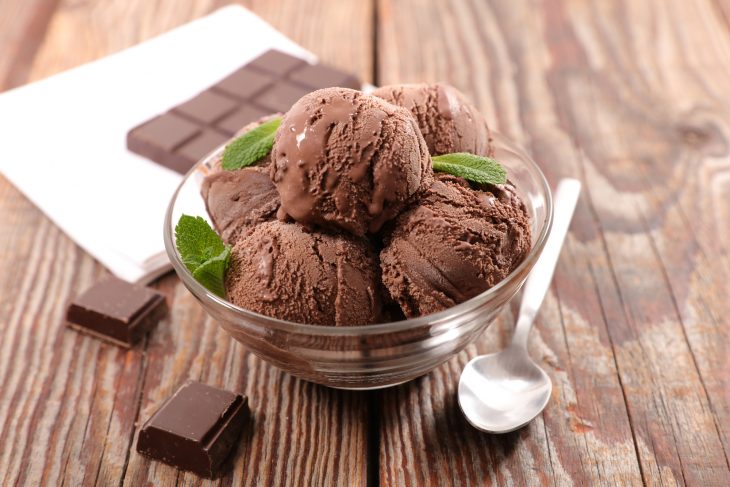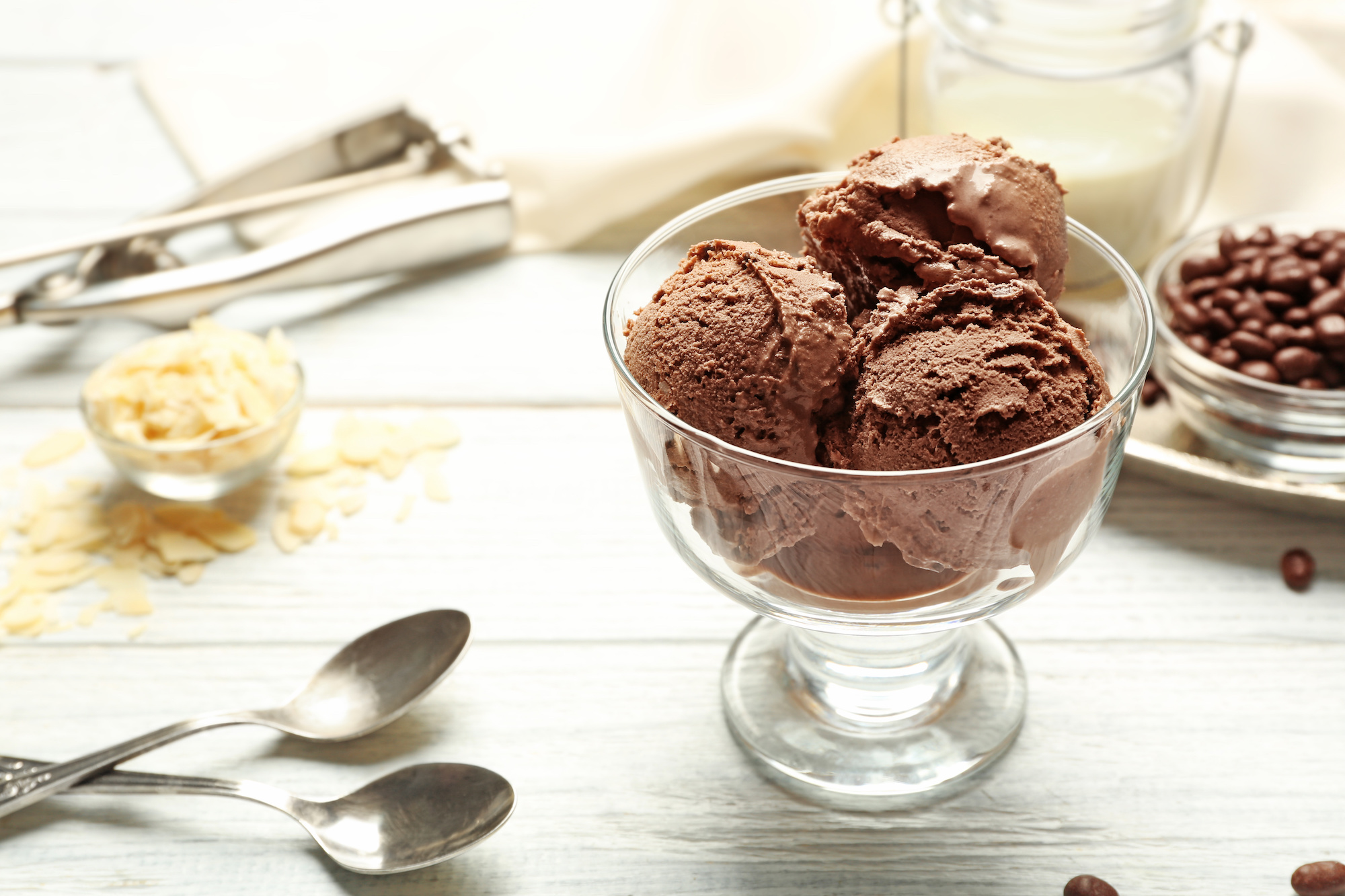
Indulging in a creamy scoop of chocolate ice cream is a delight enjoyed by many. The rich, velvety texture and heavenly taste make it a popular treat for people of all ages. But have you ever wondered about the nutritional aspects of this delectable dessert? In this comprehensive article, we will delve into the world of chocolate ice cream nutrition facts, uncovering the key ingredients, the caloric content, and the potential health benefits. So, let’s embark on a delicious journey to explore the nutritional side of everyone’s favorite frozen delight!
The Allure of Chocolate
Chocolate has been adored for centuries, captivating our taste buds and satisfying our cravings for something sweet. Its rich flavor comes from cocoa beans, which are processed to create cocoa powder and chocolate products. When blended with ice cream, chocolate creates a heavenly dessert experience.
The Art of Ice Cream Making
Ice cream is created by combining cream, sugar, and flavorings. The mixture is then churned and frozen to create the delightful texture and consistency we all love. Chocolate ice cream adds the irresistible taste of chocolate to this delightful frozen treat.
Ingredients
Cream is one of the primary ingredients in chocolate ice cream, providing the smooth and creamy texture that we love. It adds richness and contributes to the mouthwatering flavor. Chocolate ice cream also contains cocoa, which accounts for its distinctive flavor. Milk and sugar are also crucial components of chocolate ice cream, giving it its creamy texture and sweet taste respectively. Make sure to read the label for any potential allergens before you consume any chocolate ice cream.

Caloric Content
The caloric content of chocolate ice cream can vary depending on the brand and recipe. On average, a half-cup serving of chocolate ice cream contains approximately 150-200 calories. It’s important to be mindful of portion sizes to maintain a balanced diet.
Fat Content
Chocolate ice cream typically has a moderate-to-high fat content due to the presence of cream and milk. The total fat content can range from 7-10 grams per half-cup serving. It’s worth noting that not all fats are created equal. Chocolate ice cream also contains saturated fats, which can negatively impact heart health. A half-cup serving of chocolate ice cream offers around 4 to 6 grams of saturated fat. Remember, moderation is key when consuming high-fat foods.
Sugar Content
Chocolate ice cream is known for its sweet taste, which is attributed to its sugar content. On average, a half-cup serving of chocolate ice cream contains around 15-20 grams of sugar. It’s important to be aware of your sugar intake and consume it in moderation.
Carbohydrates
A serving of chocolate ice cream provides approximately 19 grams of carbohydrates. These carbohydrates come from the sugar used in the ice cream mixture, contributing to its sweet taste.
Protein
While chocolate ice cream is not a significant source of protein, a serving typically contains around 2 grams. Protein is essential for various bodily functions and is an important part of a balanced diet.
Antioxidants from Cocoa
Cocoa, the main flavoring agent in chocolate ice cream, contains antioxidants called flavonoids. These antioxidants have been associated with potential health benefits, such as improving heart health and reducing inflammation. However, it’s important to note that these benefits are more pronounced in dark chocolate with a higher cocoa content.
Calcium-Rich
Chocolate ice cream made with milk can be a source of calcium, a vital mineral for maintaining strong bones and teeth. However, it’s important to ensure a balanced diet that includes other calcium-rich foods to meet your daily requirements.
Source of Vitamin A
Chocolate ice cream often contains vitamin A, an essential nutrient for maintaining healthy vision, skin, and immune function. The exact amount can vary, but a serving of chocolate ice cream may contribute to a small portion of your daily vitamin A needs.

Mood-Boosting Properties
Chocolate is known to have mood-enhancing effects, thanks to the presence of various compounds such as phenylethylamine and serotonin. Indulging in a scoop of chocolate ice cream can bring a smile to your face and lift your spirits.
Moderation and Dietary Considerations
While chocolate ice cream can be enjoyed as an occasional treat, it’s important to consume it in moderation as part of a balanced diet. Individuals with dietary restrictions, such as lactose intolerance or dairy allergies, should opt for alternatives like dairy-free or plant-based chocolate ice cream options.
Pairing with Nutritious Ingredients
Enhance the nutritional value of your chocolate ice cream by adding nutritious toppings. Fresh fruits like berries or sliced almonds can add vitamins, minerals, and fiber to your indulgent treat.
Conclusion
Chocolate ice cream is a beloved dessert that brings joy and satisfaction to countless individuals. While it’s undoubtedly a delicious treat, it’s essential to be mindful of its nutritional aspects. From the indulgent ingredients to the caloric content and potential health benefits, understanding chocolate ice cream’s nutritional profile allows us to enjoy it in moderation while maintaining a balanced diet. So, the next time you savor a scoop of chocolate ice cream, relish the moment and appreciate the delightful blend of flavor and nutrition it offers.
Frequently Asked Questions (FAQs)
Is chocolate ice cream suitable for individuals with lactose intolerance?
Traditional chocolate ice cream contains milk and cream, making it unsuitable for individuals with lactose intolerance. However, there are dairy-free and lactose-free alternatives available that provide a similar taste and texture.
Can chocolate ice cream be part of a balanced diet?
Yes, chocolate ice cream can be enjoyed as part of a balanced diet when consumed in moderation. It’s important to be mindful of portion sizes and incorporate other nutritious foods into your daily meals.
Does chocolate ice cream contain gluten?
Pure chocolate ice cream made with basic ingredients like cocoa, sugar, milk, and cream is typically gluten-free. However, it’s essential to check the label or inquire about potential cross-contamination if you have gluten sensitivities or allergies.
Can chocolate ice cream be a source of protein?
While chocolate ice cream contains milk, which is a source of protein, the amount of protein in a typical serving is relatively low. If you’re looking to increase your protein intake, other protein-rich foods should be incorporated into your diet.
Are there healthier alternatives to traditional chocolate ice cream?
Yes, there are healthier alternatives available, such as low-fat or reduced-sugar versions of chocolate ice cream. Additionally, there are also dairy-free, vegan, and plant-based options for those with dietary restrictions or preferences.
Was this page helpful?
Our commitment to delivering trustworthy and engaging content is at the heart of what we do. Each fact on our site is contributed by real users like you, bringing a wealth of diverse insights and information. To ensure the highest standards of accuracy and reliability, our dedicated editors meticulously review each submission. This process guarantees that the facts we share are not only fascinating but also credible. Trust in our commitment to quality and authenticity as you explore and learn with us.
